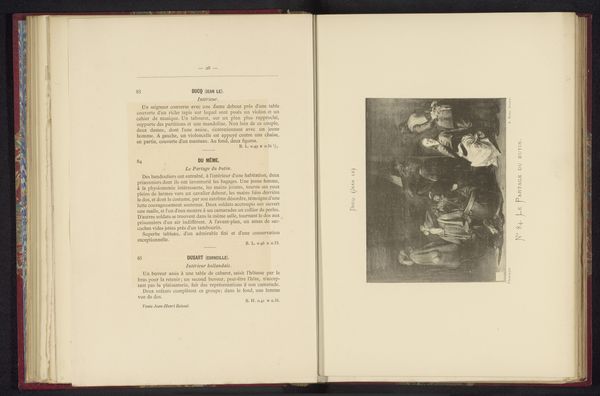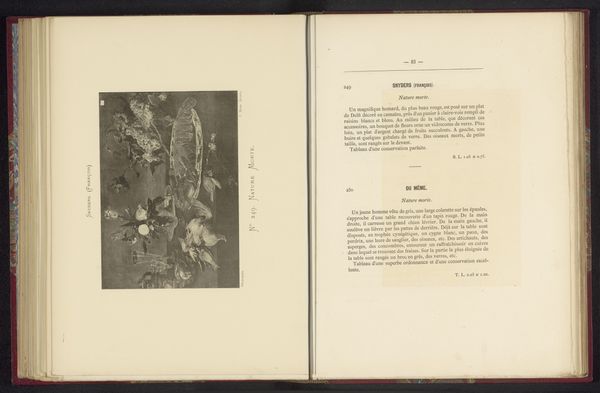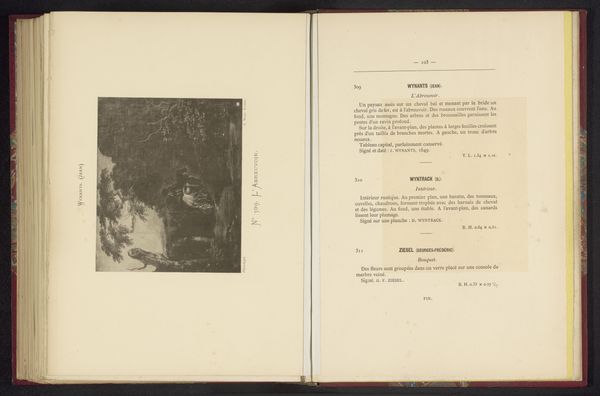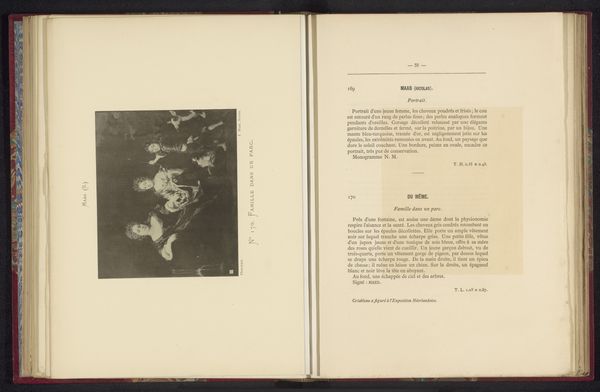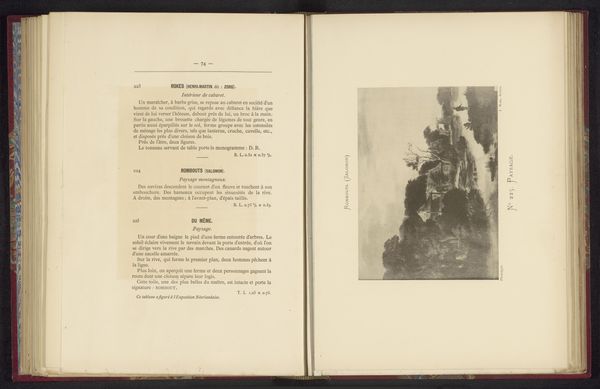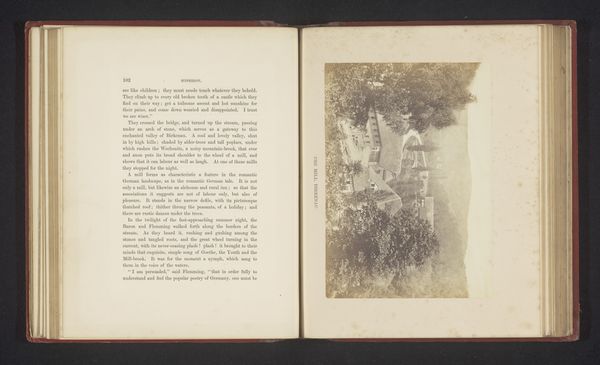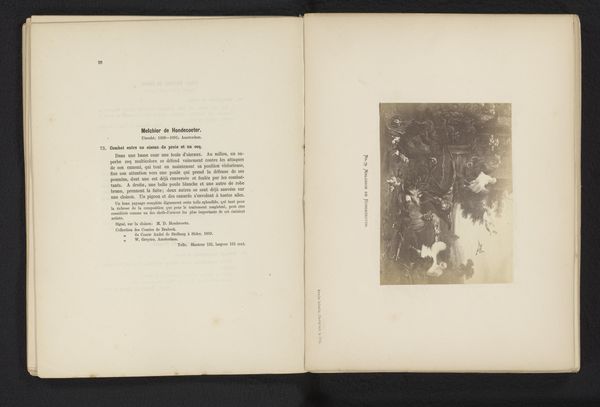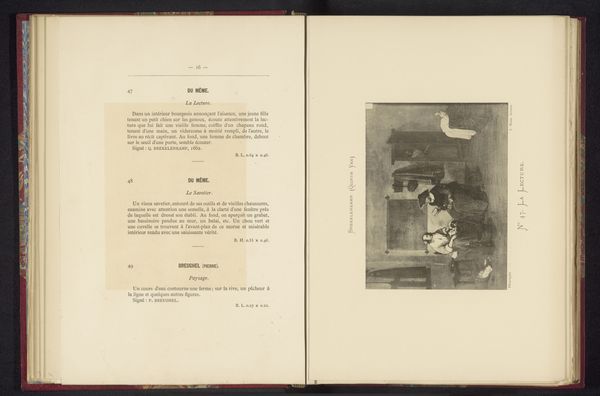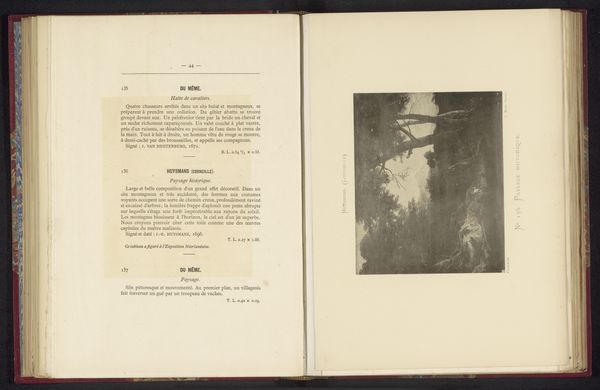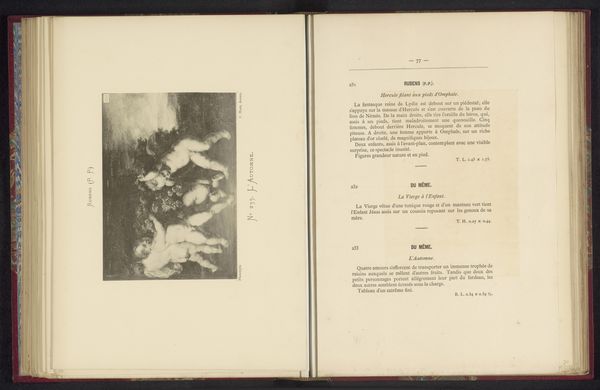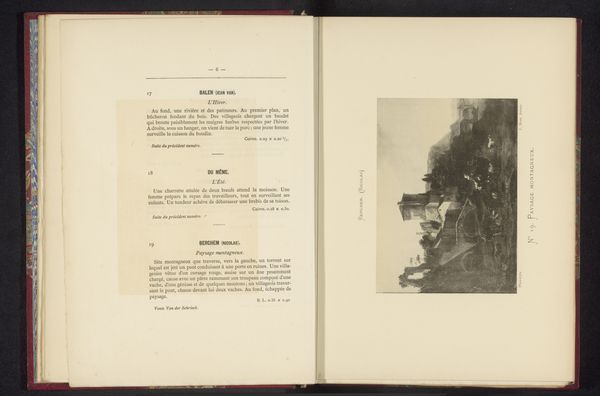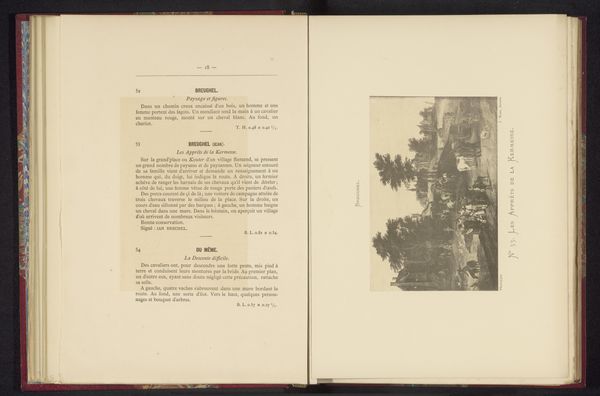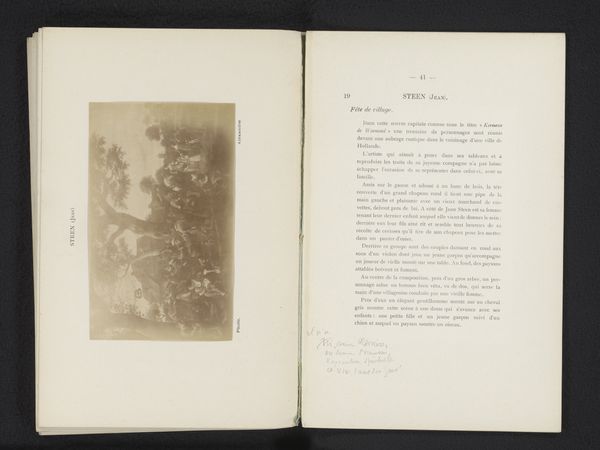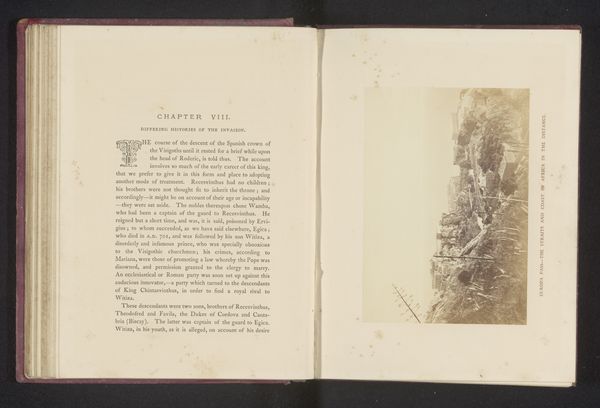
Reproductie van een schilderij van een landschap van Peter Paul Rubens before 1883
0:00
0:00
Dimensions: height 112 mm, width 160 mm
Copyright: Rijks Museum: Open Domain
Editor: So, here we have what is titled "Reproductie van een schilderij van een landschap van Peter Paul Rubens," dating to before 1883. It looks like a print of an oil painting – possibly an engraving or etching on paper. The mood is somber, dramatic. It reminds me of the Romantic era's fascination with nature's power. What do you see in this piece? Curator: What immediately grabs my attention is the layered process of reproduction we are witnessing. We’re not looking at the original Rubens, but a copy, a translation if you will. Focus on the material reality. It’s an engraving of an oil painting. Consider the economic drivers of printmaking at this time. What demands were these reproductions fulfilling? Was it about accessibility for a burgeoning middle class? What are your thoughts on that aspect? Editor: That's interesting – I hadn’t really thought about the market for reproductions back then. So it’s less about high art and more about making art available for everyday consumption? Curator: Precisely. And consider the engraver’s skill. Their labor, their interpretation of Rubens' original brushstrokes, rendered in line and shadow. Where does 'originality' truly reside here? Is it solely with Rubens, or does the engraver’s hand imbue it with new meaning through its reproductive process? The engraver reshapes the materials! Editor: So the value shifts from the artistic genius of Rubens to the craftsmanship and social context of printmaking. That’s a real change in perspective for me. Curator: Indeed. And thinking materially: paper production, ink formulas, the printing press itself, all contributed to how people could encounter Rubens’ landscapes. Consider those material circumstances to shape art’s social life! Editor: That makes me rethink the power of these "lesser" art forms and labor behind them. I really appreciate that view, thank you. Curator: A shift in perspective can reveal whole new understandings of value!
Comments
No comments
Be the first to comment and join the conversation on the ultimate creative platform.
